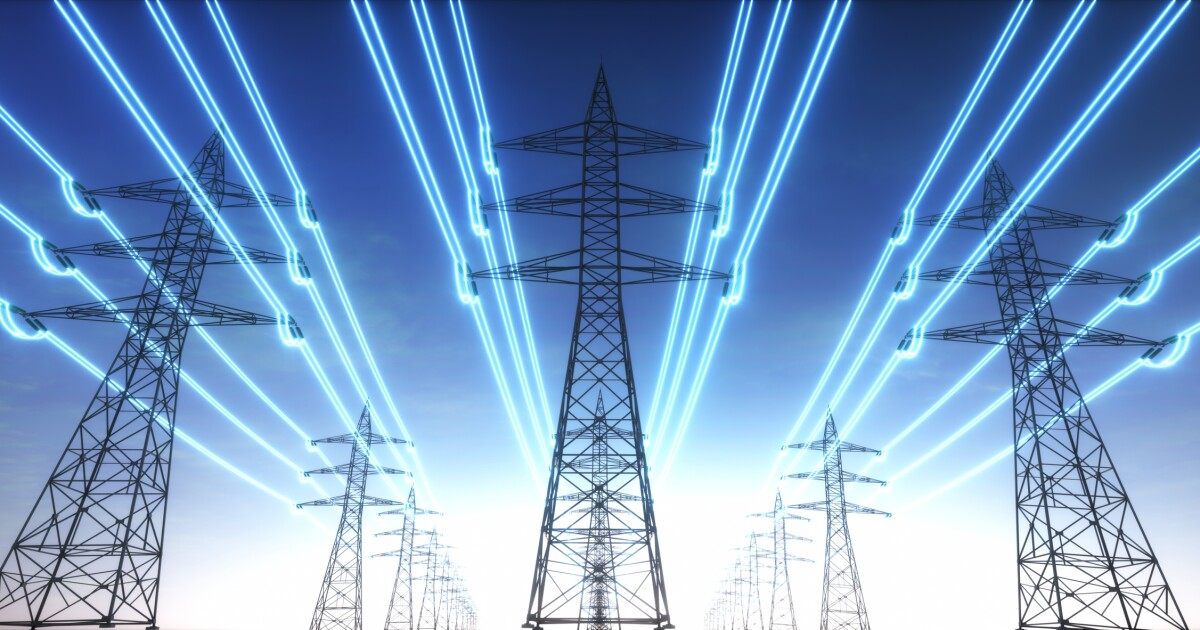

Energy project permitting reform is shaping up to be one of the few areas that look ripe for bipartisan deal-making in what will soon be a divided Congress.
It may yet happen even before the current Congress is shown the door, as a unified Democratic government stays put for nearly another month, with President Joe Biden in the White House and Democratic majorities in the House and the Senate. That’s because Sen. Joe Manchin (D-WV) will have another go at getting his Energy Independence and Security Act of 2022 tacked onto must-pass legislation — in this case, the annual defense spending bill. The chances look slim, though, ahead of Republicans taking the House majority on Jan. 3 when the 118th Congress opens. (Democrats will keep control of the Senate.)
However it’s done, negotiators have their work cut out to forge a consensus. Because while there is a widespread appetite for legislation making some portion of federal environmental review and permitting processes faster, there remains deep ideological disagreement about what kinds of energy infrastructure projects deserve attention.
CHEVRON IN VENEZUELA: THE BIDEN ADMINISTRATION’S SANCTIONS RELIEF EXPLAINED
More specifically, where one faction is won, say with the imposition of new restrictions on litigation against projects, another is quickly lost.
Many liberal House Democrats strongly opposed a “side deal” between Manchin and Senate Majority Leader Chuck Schumer (D-NY) over permitting reform. In September, the senator from West Virginia pulled his plan off the floor after he could not get enough GOP votes in order to attach it to a short-term funding bill. And Schumer agreed to support the advancement of “comprehensive” permitting reform by the end of the fiscal year.
Democratic opponents viewed the provisions in Manchin’s bill, which would put new limits on litigation against projects and make it easier for fossil fuel pipelines to be approved, as trampling on good environmental stewardship.
Rep. Raul Grijalva (D-AZ), the outgoing chairman of the House Natural Resources Committee, led a campaign against Manchin’s proposal and urged leaders not to permit it to be added to a continuing resolution that would fund the government.
Dozens of House Democrats also joined Grijalva, who dismissed permitting reform as a “euphemism by the extraction industry.” And Manchin eventually pulled the bill after it became clear he lacked the necessary support, including from Republicans, many of whom themselves weren’t interested in serving Manchin’s deal with Schumer, either.
However, in the weeks since, the House Sustainable Energy and Environment Coalition, of which Grijalva and several others who signed on to his effort against Manchin’s bill are members, released a policy outline promoting “permitting reform for the clean energy future” that reflected openness to some reforms.
The outline focuses primarily on the speeding of siting and construction of new electric transmission infrastructure, acknowledging that “renewable energy is only as good as the electrical system upon which it relies.” Some estimates suggest transmission will need to double or triple to accommodate the growth in generating capacity.
Democrats acknowledge the need for reform, according to one senior House Democratic policy adviser. But one barrier has been the close association of “permitting reform” with the Manchin or GOP vision, which favors faster approvals for the exact type of oil and gas projects that many Democrats want to limit or end altogether.
“How do you want to use the term ‘permitting reform?’ You know, in some communities, it’s become anathema to even say those two words together,” the person told the Washington Examiner. “But it can be somewhat in the eye of the beholder in terms of how you want to define what falls under that.”
There is some willingness among House Democrats who have opposed the Manchin bill to accept some permitting provisions favoring fossil fuels if a consensus bill were otherwise strong, according to the same Democratic aide, much as they did with the Inflation Reduction Act, which revamped oil and gas leasing on federal lands.
A hangup to such negotiations would likely come in the form of pressure from environmentalists, a key Democratic constituency that has helped shape the party’s climate policy and kept the squeeze on Biden to act even more aggressively than he has to reduce emissions. Environmental nongovernmental organizations lobbied hard against the Manchin-Schumer deal.
CLICK HERE TO READ MORE FROM THE WASHINGTON EXAMINER
“The traditional environmentalist movement is also not there yet because they’ve been so focused for the past decade-plus, really more than a decade, on opposing new projects in the name of something greater,” the person said. “They’ve just had to be put in such a defensive role. Finally, with the past few years, we’ve been able to be offensive, and now it’s a question of, ‘Do we just go back to trying to stop things? Or are we now in a new place where we’re trying to build things?'”
On the GOP side, Republicans have long been vocal about the need to cut “red tape” and reform permitting. House Republicans launched an Energy, Climate, and Conservation Task Force to prepare for the midterm elections, promoting a “let America build” policy that included reforms to the National Environmental Protection Act and the speeding of transmission building.






